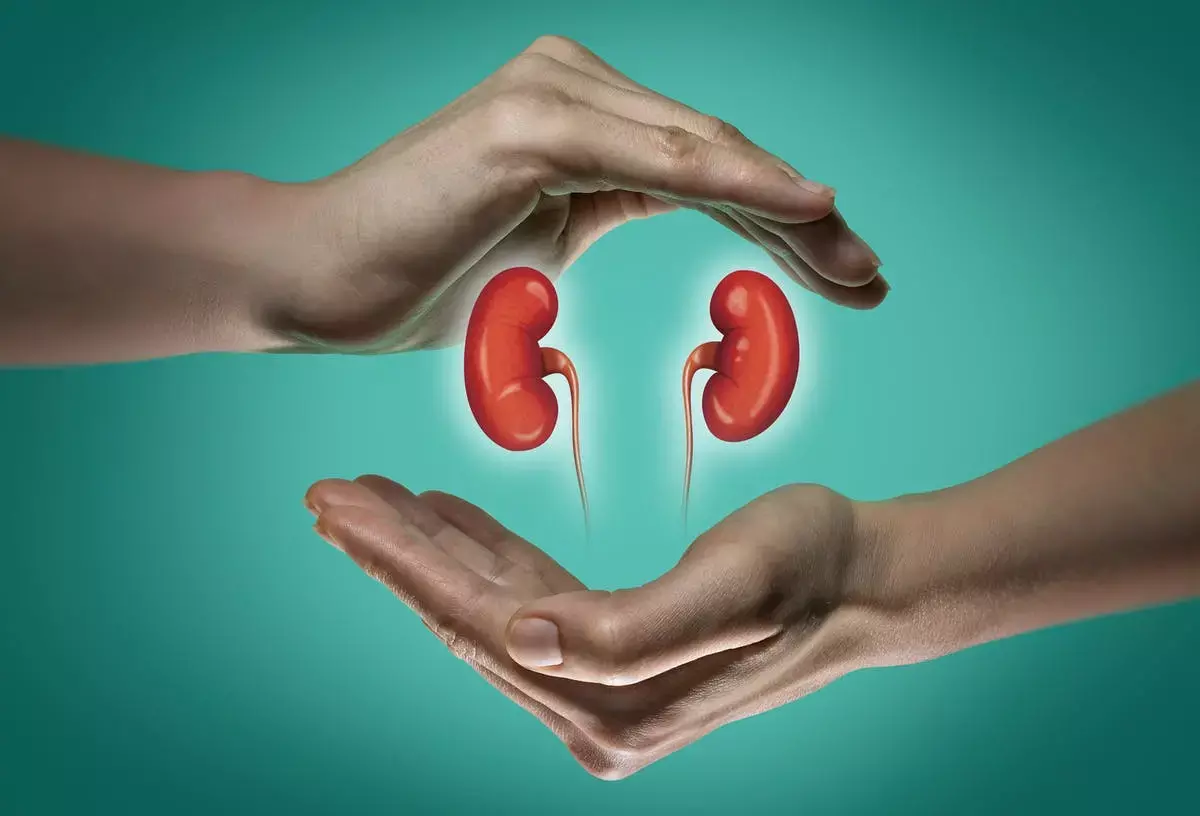- Home
- Medical news & Guidelines
- Anesthesiology
- Cardiology and CTVS
- Critical Care
- Dentistry
- Dermatology
- Diabetes and Endocrinology
- ENT
- Gastroenterology
- Medicine
- Nephrology
- Neurology
- Obstretics-Gynaecology
- Oncology
- Ophthalmology
- Orthopaedics
- Pediatrics-Neonatology
- Psychiatry
- Pulmonology
- Radiology
- Surgery
- Urology
- Laboratory Medicine
- Diet
- Nursing
- Paramedical
- Physiotherapy
- Health news
- Fact Check
- Bone Health Fact Check
- Brain Health Fact Check
- Cancer Related Fact Check
- Child Care Fact Check
- Dental and oral health fact check
- Diabetes and metabolic health fact check
- Diet and Nutrition Fact Check
- Eye and ENT Care Fact Check
- Fitness fact check
- Gut health fact check
- Heart health fact check
- Kidney health fact check
- Medical education fact check
- Men's health fact check
- Respiratory fact check
- Skin and hair care fact check
- Vaccine and Immunization fact check
- Women's health fact check
- AYUSH
- State News
- Andaman and Nicobar Islands
- Andhra Pradesh
- Arunachal Pradesh
- Assam
- Bihar
- Chandigarh
- Chattisgarh
- Dadra and Nagar Haveli
- Daman and Diu
- Delhi
- Goa
- Gujarat
- Haryana
- Himachal Pradesh
- Jammu & Kashmir
- Jharkhand
- Karnataka
- Kerala
- Ladakh
- Lakshadweep
- Madhya Pradesh
- Maharashtra
- Manipur
- Meghalaya
- Mizoram
- Nagaland
- Odisha
- Puducherry
- Punjab
- Rajasthan
- Sikkim
- Tamil Nadu
- Telangana
- Tripura
- Uttar Pradesh
- Uttrakhand
- West Bengal
- Medical Education
- Industry
Timely management of psoriasis lowers infection and mortality risk in ESRD: Study

Psoriasis is a chronic inflammatory skin disease related to T-cell-mediated immunity. The global prevalence of psoriasis is 0.91–8.5%. Despite novel treatments, psoriasis is associated with a considerable socioeconomic burden and with a variety of comorbidities, which reduce the quality of life of psoriatic patients.
It is a serious and refractory disease due to "invisible inflammation". Psoriasis is not limited to the skin; the "psoriatic march" leads to elevated levels of oxidative stress, endothelial dysfunction, abnormal glucose metabolism, insulin resistance, and ultimately cardiovascular disease. Several studies have evaluated the relationship between psoriasis and metabolic, kidney or cardiovascular disease, but none have addressed the relationships between the subtype of, or treatment for, psoriasis and chronic kidney diseases such as end-stage renal disease (ESRD).
Recent study results suggest that psoriasis in end-stage renal disease patients may have an increased risk of infection and treatment of psoriasis is associated with a reduced risk of some infections and improved survival. The findings have been put forth in American Journal of Medical Sciences.
Psoriasis impairs the quality of life of approximately 7.5 million Americans and is associated with serious comorbidities. Because of chronic vascular access and epidermal dysfunction, end-stage renal disease (ESRD) patients with psoriasis may be at greater risk for infection, and psoriasis treatment could affect this risk.
A retrospective cohort analysis was performed using the United States Renal Data System from 2004-2011 to investigate the association of psoriasis with infections common to ESRD patients, as well as the effect of psoriasis treatment on infection risk as well as mortality.
Results put forth some key facts.
- A total of 8,911 psoriasis patients were identified. Psoriasis was associated with a significantly increased risk for all queried infections, especially cellulitis (adjusted relative risk = 1.55), conjunctivitis (1.47), and onychomycosis (1.36).
- Psoriasis treatment (systemic, local, and light) was associated with a significantly decreased risk of some infections.
- Psoriasis treatment was also correlated with a significantly decreased risk of mortality, with systemic therapies (biologics and other immunosuppressants) showing the greatest reduction (adjusted hazard ratio = 0.55).
For full article follow the link: https://doi.org/10.1016/j.amjms.2021.03.009
Source: American Journal of Medical Sciences
Dr Satabdi Saha (BDS, MDS) is a practicing pediatric dentist with a keen interest in new medical researches and updates. She has completed her BDS from North Bengal Dental College ,Darjeeling. Then she went on to secure an ALL INDIA NEET PG rank and completed her MDS from the first dental college in the country – Dr R. Ahmed Dental College and Hospital. She is currently attached to The Marwari Relief Society Hospital as a consultant along with private practice of 2 years. She has published scientific papers in national and international journals. Her strong passion of sharing knowledge with the medical fraternity has motivated her to be a part of Medical Dialogues.
Dr Kamal Kant Kohli-MBBS, DTCD- a chest specialist with more than 30 years of practice and a flair for writing clinical articles, Dr Kamal Kant Kohli joined Medical Dialogues as a Chief Editor of Medical News. Besides writing articles, as an editor, he proofreads and verifies all the medical content published on Medical Dialogues including those coming from journals, studies,medical conferences,guidelines etc. Email: drkohli@medicaldialogues.in. Contact no. 011-43720751


